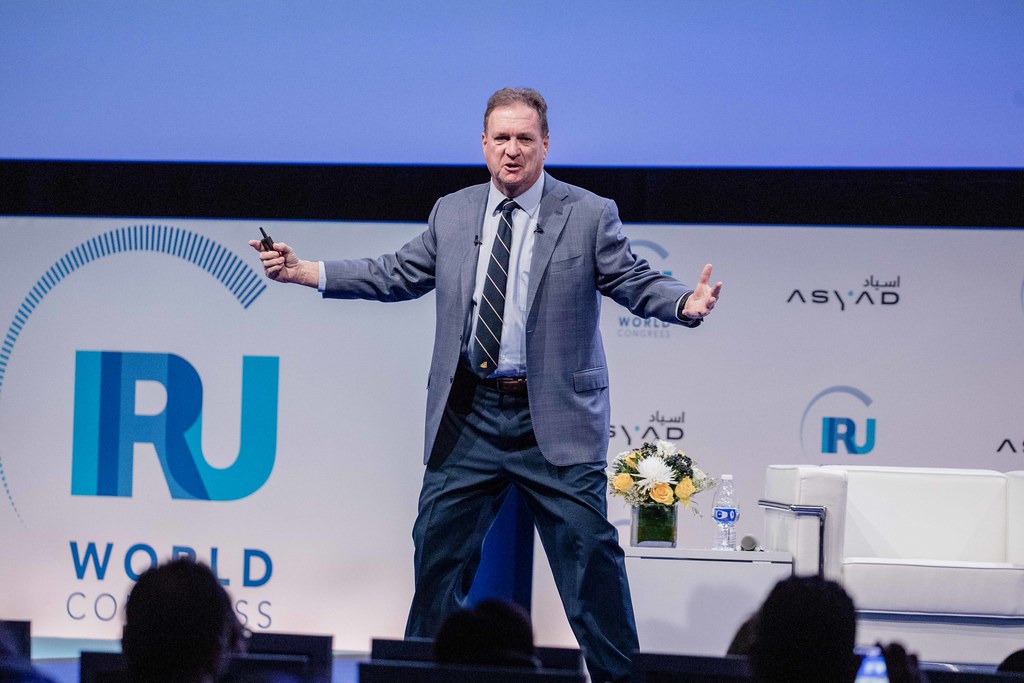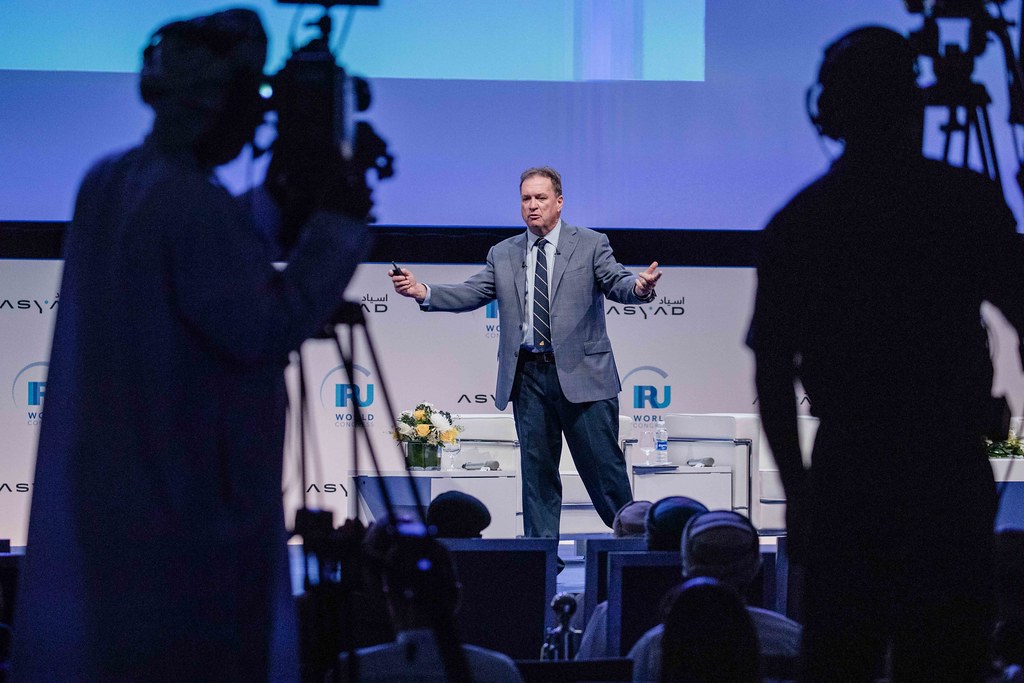IRU World Congress plenary session 2 wrap-up
Global mobility has dramatically changed over the past 70 years but is the most important shift yet to come? The 21st century will see road transport becoming increasingly digital, connected and automated. This brings up some very important questions.
What innovations have changed road transport in the past decade? Will these new trends be transitory or part of the long-term solutions? Which innovations will be disruptive for the industry? Which will prevail? What challenges will technologies raise for society and our economic model?
And the culmination of all these questions, and others, is what will road transport look like in 5, 10 or another 70 years?
Following the coffee break, where the six startup finalists pitched their businesses to the audience, the second Plenary Session invited delegates to debate the future, with futurist, Jim Carroll, providing prescient insights.
One of the world’s leading futurists and innovation experts, Jim Carroll made the point that road transport technology remains essentially unchanged. We’re still using internal combustion engines, air-filled rubber wheels and tarmac roads.
“The future belongs, to those who are fast.”
The combination of autonomous vehicles and data exchange is set to change everything, according to Mr Carroll. He discussed the implications of these technologies for the road transport industry, and importantly, spoke about time, the pace of change and the speed with which those who are part of the future will need to move, “The future belongs, to those who are fast.”
Speaking about disruption, he explained how small organisations are often responsible for the big changes – and for mobility, the future of the industry is being defined by the smaller, more nimble actors. He said, “The future of global competitiveness comes to those regions which align themselves with innovation,” adding, “with half the global population under the age of 25, access to skills is the new success factor for going forward into the future.”
The audience then gave their views on which innovations would actually come to market and the impact they are likely to have.
A panel discussion, moderated by CNN anchor, John Defterios, brought journalist, Jorn Madslien, logistics expert, Mark Millar, and next-generation transport leader Alex Knowles into a discussion on innovation with Mr Carroll.
The discussion centred around making sense of the evolving technologies and what they mean for the road transport industry. It is easy to get carried away with the excitement of innovations. However, it is also important to balance what is technologically doable with what is commercially viable.
The panel sought to guide the industry by teasing out which innovations are likely to have a real impact and which could fade away.

































